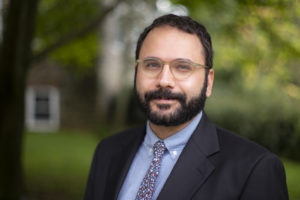Megan Alexander
Osman Balkan is a Visiting Assistant Professor of Political Science at Swarthmore College. He received his B.A. from Reed College and his Ph.D. from the University of Pennsylvania. His research and teaching interests include political identity, migration and citizenship, race and ethnicity, and necropolitics. Balkan’s first book manuscript, Dying Abroad, offers an ethnographic study of how ethno-religious minorities in Europe navigate and make sense of death and dying in countries that they do not necessarily view as their own. His second project examines the complex negotiations surrounding the burial and memorialization of terrorists and victims of political violence in Europe and the United States. His work has been published in Studies in Ethnicity and Nationalism, Contemporary French Civilization, the Journal of Intercultural Studies, and in edited volumes including The Democratic Arts of Mourning and Turkey’s Necropolitics.
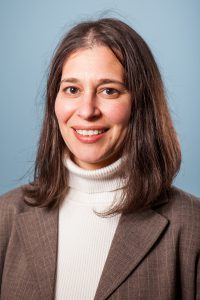
Melissa Basile is a medical anthropologist currently working as a researcher in the area of implementation and dissemination science. Her research is focused on processes of deliberation and decision making for patients with advanced chronic lung diseases such as cystic fibrosis and COPD, and the ways in which individuals negotiate lay and biomedical knowledge systems in order to understand and make decisions about their treatments. Melissa has spent many years conducting participatory fieldwork among community based organizations in health care and development, and in using qualitative methodologies to gain insight into how patients understand disease and illness. She has written and presented on the social theory of embodiment, personhood, and the anthropology of education and is currently working on applying these bodies of theory to ethnographies of end-of-life care.
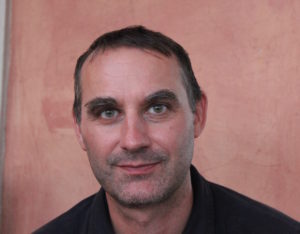 Marc-Antoine Berthod is trained as an anthropologist (PhD in 2003, University of Neuchâtel, Switzerland), I taught at the Department of Sociology of the University of Geneva and at the University Institute Kurt Bösch in Sion, for the European Master in Palliative Care and Thanatology. For more than three years, I was later on director of the Research Institute of the Department of Health and Social Work at the University of Applied Sciences Western Switzerland in Sion. During my career, I also had the opportunity to be a visiting scholar at the Department of Anthropology at the Graduate Center of the City University of New York and a few years later at the Department of Anthropology at the New School for Social Research, in New York as well. Since 2009, I am full professor at the School of Social Work at the University of Applied Sciences and Arts Western Switzerland (HES-SO) in Lausanne. My research interests and main publications focus on death, dying and bereavement; migration and repatriation of bodies; assisted suicide; palliative care and ageing; rituals and community life within institutions. I am currently president of the Thanatological Society Western Switzerland. Website: www.mort-
Marc-Antoine Berthod is trained as an anthropologist (PhD in 2003, University of Neuchâtel, Switzerland), I taught at the Department of Sociology of the University of Geneva and at the University Institute Kurt Bösch in Sion, for the European Master in Palliative Care and Thanatology. For more than three years, I was later on director of the Research Institute of the Department of Health and Social Work at the University of Applied Sciences Western Switzerland in Sion. During my career, I also had the opportunity to be a visiting scholar at the Department of Anthropology at the Graduate Center of the City University of New York and a few years later at the Department of Anthropology at the New School for Social Research, in New York as well. Since 2009, I am full professor at the School of Social Work at the University of Applied Sciences and Arts Western Switzerland (HES-SO) in Lausanne. My research interests and main publications focus on death, dying and bereavement; migration and repatriation of bodies; assisted suicide; palliative care and ageing; rituals and community life within institutions. I am currently president of the Thanatological Society Western Switzerland. Website: www.mort-
Erica Borgstrom is a trained anthropologist with an interest in medical anthropology and dying studies. She is a lecturer in medical anthropology and end of life care at The Open University (OU) in the UK. Her research looks at how palliative and end of life care are practiced, often using ethnographic methods. Her PhD research examined ‘choice’ in relation to policy, and its translation into practice, as well as the experiences of those living with chronic and/or terminal illness. Outside of the OU, Erica is editor of Mortality – an international, interdisciplinary journal of death studies – and a council member for the Association for the Study of Death and Society. She has made film with BBC Ideas about planning for the end of life – https://www.bbc.co.uk/ideas/videos/should-everyone-have-an-end-of-life-plan/p099x2yh
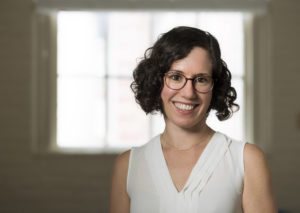
Mara Buchbinder, Ph.D. is Associate Professor of Social Medicine and Adjunct Associate Professor of Anthropology at UNC – Chapel Hill, as well as core faculty in the UNC Center for Bioethics. Buchbinder is a medical anthropologist with broad interests in cultures of health, illness, and medicine in the United States. Her recent work focuses on how patients, families, and healthcare providers navigate social and ethical challenges resulting from changes in medical technology, law, and health policy. She is the author of Saving Babies? The Consequences of Newborn Genetic Screening (with Stefan Timmermans, 2013, University of Chicago Press) and All in Your Head: Making Sense of Pediatric Pain (2015, University of California Press), the editor of Understanding Health Inequalities and Justice: Bridging Perspectives for New Conversations (with Michele Rivkin-Fish and Rebecca Walker, 2016, UNC Press), and co-editor of the two volume series The Social Medicine Reader, 3rd edition, (2019, Duke University Press). Buchbinder’s current book project, Scripting Death: Agency and Control at the End of Life, is an ethnographic account of the implementation of Vermont’s medical aid-in-dying law.
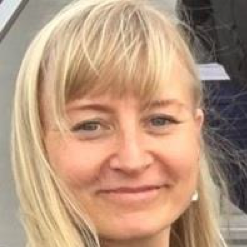 Maija K. Butters (maija.butters@helsinki.fi) is a cultural anthropologist working in the doctoral program of History and Cultural Heritage at the University of Helsinki, Finland. She teaches on death cultures and rituals in various religious and cultural traditions, and her dissertation study is on contemporary death and dying in Finland. In this ethnographic study, she focuses on the various cultural means that terminally ill people employ in order to handle their mortality. She has written on the metaphysical meaning of aesthetic experiences in the face of death, and currently she is looking into rituals and ritualizations around dying patients in hospital and hospice surroundings. The dissertation also includes a critical discussion on contemporary care system and healthcare politics in Finland.
Maija K. Butters (maija.butters@helsinki.fi) is a cultural anthropologist working in the doctoral program of History and Cultural Heritage at the University of Helsinki, Finland. She teaches on death cultures and rituals in various religious and cultural traditions, and her dissertation study is on contemporary death and dying in Finland. In this ethnographic study, she focuses on the various cultural means that terminally ill people employ in order to handle their mortality. She has written on the metaphysical meaning of aesthetic experiences in the face of death, and currently she is looking into rituals and ritualizations around dying patients in hospital and hospice surroundings. The dissertation also includes a critical discussion on contemporary care system and healthcare politics in Finland.
Maija is involved with hospice education, and she lectures on culturally and religiously sensitive patient care in hospitals and at medical conferences. Previously she has published on Buddhist art and Tibetan culture, and she has also written on the embodied experiences of becoming a mother. Various philosophical and anthropological themes, such as embodiment, rituals, aesthetics, suffering and joy, are close to her heart.
Kate Dean-Haidet, Ph.D., MSN recently received a doctorate in Comparative Studies from the Ohio State University. Her interdisciplinary research is an ethnography of grief and mourning conducted in multisite hospice and bereavement spaces. In this work, she relies on scholarship from comparative philosophy/religion, cultural anthropology, and narrative studies to interrogate particular ways that relationship between the living and the dead is imagined, narrated, somatically perceived, and ritually enacted by contemporary American mourners. She has presented her research nationally and internationally to diverse disciplinary audiences and hopes to publish this work soon. Previously, Kate taught university coursework in holistic nursing while working as a volunteer during the AIDS epidemic. This work galvanized her interest in questions of how to “die well.” In her holistic nursing practice, she employed the use of herbal medicine, energy therapies, dream work, yoga, meditation, and music. Kate currently works as an educator, consultant, and bereavement counselor at an Ohio hospice where she occasionally plays her Celtic harp. Her current interests include phenomenological approaches to studying affective dynamics in mourning; curiosity about what constitutes “spirituality” in end-of-life care; appropriation of Buddhist philosophy & practice in American culture; theories of personhood; and the rise of feminist ethics as counterpoint to justice and principle based ethics in palliative/hospice health care practice.
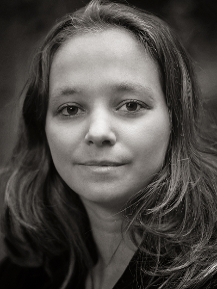 Natashe Lemos Dekker is a PhD candidate at the medical anthropology department at the University of Amsterdam. Her research focuses on social processes and the management of death and dying with dementia. She scrutinizes the notion of social death and critically assesses the politics of death and dying by questioning normative conditions for the production of lives worth living. Through ethnographic fieldwork in nursing homes in the Netherlands, she addresses how notions of a good death relate to end of life decision making and the provision of long term care for people with dementia. In doing so she explores anticipation of the end of life and experiences of grief and loss. Within this research project, and specific to the Dutch context, she addresses the challenges and motivations for euthanasia in the case of dementia, and implementations of the palliative care tool Zorgpad Stervensfase (a Dutch version of the Liverpool Care Pathway) in a nursing home setting. Previously, she has conducted field research in Buenos Aires, Argentina on bereavement and political action among women who have lost family members during the dictatorship. She holds an MA in gender and ethnicity studies and an MA in cultural anthropology, both from Utrecht University.
Natashe Lemos Dekker is a PhD candidate at the medical anthropology department at the University of Amsterdam. Her research focuses on social processes and the management of death and dying with dementia. She scrutinizes the notion of social death and critically assesses the politics of death and dying by questioning normative conditions for the production of lives worth living. Through ethnographic fieldwork in nursing homes in the Netherlands, she addresses how notions of a good death relate to end of life decision making and the provision of long term care for people with dementia. In doing so she explores anticipation of the end of life and experiences of grief and loss. Within this research project, and specific to the Dutch context, she addresses the challenges and motivations for euthanasia in the case of dementia, and implementations of the palliative care tool Zorgpad Stervensfase (a Dutch version of the Liverpool Care Pathway) in a nursing home setting. Previously, she has conducted field research in Buenos Aires, Argentina on bereavement and political action among women who have lost family members during the dictatorship. She holds an MA in gender and ethnicity studies and an MA in cultural anthropology, both from Utrecht University.
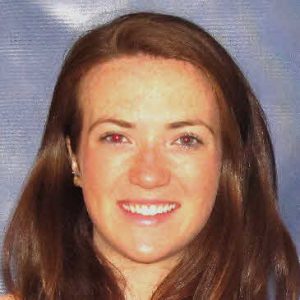 Nora Rose Downey received her Bachelor’s Degree in Anthropology from the University of Massachusetts Amherst in 2012. After graduation she took the opportunity to live in South Korea and learn Korean Taoist Meditation, Kouk Sun Do. It was an intensive immersion in an ancient practice that broadened her appreciation for the continuum between life and death.
Nora Rose Downey received her Bachelor’s Degree in Anthropology from the University of Massachusetts Amherst in 2012. After graduation she took the opportunity to live in South Korea and learn Korean Taoist Meditation, Kouk Sun Do. It was an intensive immersion in an ancient practice that broadened her appreciation for the continuum between life and death.
A long-time hospice volunteer, Nora is very interested in differing practices for, and approaches to, end-of-life care. She is especially interested in the ways in which medical institutions facilitate meaning, dignity, and peace for dying patients and their families. Currently, Nora is in the process of applying to medical school and hopes to apply the perspective she gained from her various experiences, and the field of medical anthropology, to her practice specializing in palliative end-of-life care.
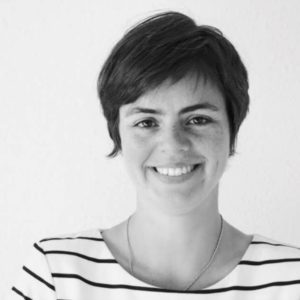 Annelieke Driessen is Assistant Professor at the London School of Hygiene & Tropical Medicine. A medical anthropologist by training, her research focuses on old age and at the and-the-life course, subjectivities, and care.
Annelieke Driessen is Assistant Professor at the London School of Hygiene & Tropical Medicine. A medical anthropologist by training, her research focuses on old age and at the and-the-life course, subjectivities, and care.
Annelieke is currently conducting a healthtalk study with patients who have been in Intensive Care with COVID19. She has previously worked as the ethnographer on the ESRC funded project ‘Forms of Care’, alongside Simon Cohn and Erica Borgstrom (see https://www.lshtm.ac.uk/research/centres-projects-groups/forms-of-care), which sought to elucidate the work that is ‘actively not-intervening’ in palliative care practice through interviews, participant observation and a small number of patient case studies. Annelieke obtained her PhD from the University of Amsterdam. In her thesis, she articulates practices in which good ways of living with dementia are crafted through the enactment of interesting subject positions for people with dementia in Dutch residential care. Annelieke.Driessen@lshtm.ac.uk
Assistant Professor Medical Anthropology at London School of Hygiene &Tropical Medicine
THIS Institute Research Fellow
Forms of care: project website and @Formsofcare
Twitter: @Annelie3ssen
Devin Flaherty, M.A. is a graduate student in psychological and medical anthropology at the University of California, Los Angeles. She currently studies hospice care in the U.S. Virgin Islands, a context in which she pursues her research interests which include the imagination, phenomenology, fatal prognoses and death.
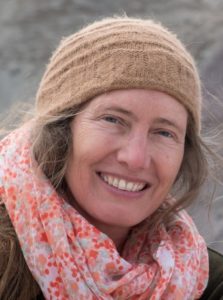 Barbara Gerke is a Medical and Social Anthropologist (M.Sc. Medical Anthropology and D.Phil. in Social and Cultural Anthropology, University of Oxford) who has been researching longevity and vitality practices in Tibetan medicine (Sowa Rigpa) and Tibetan communities in India. In the course of this research she investigated concepts of the life-span and events of untimely deaths and how Tibetan and Himalayan communities approach sudden death events through divination and Buddhist rituals. Her monograph Long Lives and Untimely Deaths was published by Brill in 2012.
Barbara Gerke is a Medical and Social Anthropologist (M.Sc. Medical Anthropology and D.Phil. in Social and Cultural Anthropology, University of Oxford) who has been researching longevity and vitality practices in Tibetan medicine (Sowa Rigpa) and Tibetan communities in India. In the course of this research she investigated concepts of the life-span and events of untimely deaths and how Tibetan and Himalayan communities approach sudden death events through divination and Buddhist rituals. Her monograph Long Lives and Untimely Deaths was published by Brill in 2012.
She currently is the Principal Investigator of a FWF-funded research project on potent substances in Sowa Rigpa and Buddhist rituals at the University of Vienna. While in Vienna, she completed a course for voluntary hospice workers in end-of-life care by the Austrian Buddhist Society and on occasion volunteers on a palliative care station in Vienna. She is interested to explore and develop future research projects in the fields of Buddhism, end-of-life care, and social practices surrounding death and dying.
Suzanna Goldblatt Clark is a Ph.D. candidate in cultural/medical anthropology at the City University of New York Graduate Center. Her dissertation looks at end of life care in the context of neonatal intensive care units. Her research focuses on the impact of technoscientific possibility on medical culture and the inconstant criteria that are used to measure viability and mark vitality. The work looks at how decisions to withhold or withdraw aggressive curative treatment are shaped by the social relationships, cultural realms, macroeconomic forces and the material realities of the NICU. More broadly Suzanna is interested in ethical challenges in medicine, healthcare economics, technological-biological interfacing, personhood, suffering and narrative medicine.
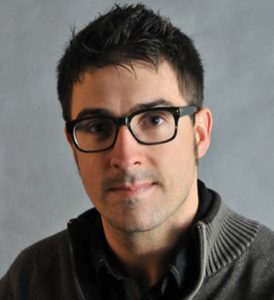 Dr. Casey Golomski is a cultural and medical anthropologist working in sub-Saharan Africa. His research explores the interplay of medicine and religion in social reproduction across the life course. Topically, he is interested in healthcare and healing, aging, death and dying, the body, ritual and religion, and work, value and risk. In his professional service, he is an associate editor for the African Journal of AIDS Research and a board member for the Northeast Workshop on Southern Africa. Dr. Golomski has published in Material Religion, Anthropology Southern Africa, Social Dynamics, and American Ethnologist. He recently completed a book in review for publication on cultural change surrounding death, dying and funerals amid AIDS in Swaziland and is beginning new work on eldercare, race and dependency in South Africa. Golomski is an Assistant Professor of Anthropology at the University of New Hampshire and an associate of the Life Course, Obligation and Dependency research unit at the University of the Witwatersrand in Johannesburg.
Dr. Casey Golomski is a cultural and medical anthropologist working in sub-Saharan Africa. His research explores the interplay of medicine and religion in social reproduction across the life course. Topically, he is interested in healthcare and healing, aging, death and dying, the body, ritual and religion, and work, value and risk. In his professional service, he is an associate editor for the African Journal of AIDS Research and a board member for the Northeast Workshop on Southern Africa. Dr. Golomski has published in Material Religion, Anthropology Southern Africa, Social Dynamics, and American Ethnologist. He recently completed a book in review for publication on cultural change surrounding death, dying and funerals amid AIDS in Swaziland and is beginning new work on eldercare, race and dependency in South Africa. Golomski is an Assistant Professor of Anthropology at the University of New Hampshire and an associate of the Life Course, Obligation and Dependency research unit at the University of the Witwatersrand in Johannesburg.
James W. Green, Ph.D. I am a recently retired anthropologist, having taught for many years at the University of Washington in Seattle. Currently I am part of a hospital team investigating the practices and skills of interpreters in cases where families speak little or no English and English-speaking physicians deliver the unhappy news of brain death, a medical term inexplicable in some cultures. We are aiming for a training protocol for physicians since little is available on the topic. In addition, I regularly present to visiting international medical students on our state’s death with dignity law and associated medical issues. “Beyond the Good Death, the Anthropology of Modern Dying” was published in 2008, an outgrowth of my most popular course, the comparative study of death. A current writing project examines how the medical literature handles the terms “spiritual” and “spiritual care” with end of life patients, a topic rife with problems of conceptual clarity and one where medical anthropology might have something useful to say. When not dealing with these grim matters, I pursue my real interest, wine collecting.
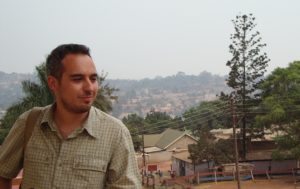 Alessandro Gusman is Assistant Professor of Anthropology at the University of Turin, Italy. His research focuses on the presence of Pentecostalism in Uganda; Congolese churches in Kampala, end-of-life care; spirituality and health; ethnographic methods. He is member of the Editorial Board of the journal “Studi Tanatologici” (Thanatological Studies) and author, in the field of dying and bereavement studies, of “Mourir chez soi. Le cas de la médicalisation du domicile en Italie”, Ethnologie française, 171, 2018; “La famille face à la maladie en phase terminale. Ethnographie dans une maison de soins palliatifs au Piémont (Italie)”, Anthropologie & Santé, 12, 2016; ) “Body, Culture and Place: Towards an Anthropology of the Cemetery” (with C. Vargas), in Rotar, M. e Teodorescu, A. (a cura di), Dying and Death in 18th-21st Century Europe, Cambridge Scholars Publishing
Alessandro Gusman is Assistant Professor of Anthropology at the University of Turin, Italy. His research focuses on the presence of Pentecostalism in Uganda; Congolese churches in Kampala, end-of-life care; spirituality and health; ethnographic methods. He is member of the Editorial Board of the journal “Studi Tanatologici” (Thanatological Studies) and author, in the field of dying and bereavement studies, of “Mourir chez soi. Le cas de la médicalisation du domicile en Italie”, Ethnologie française, 171, 2018; “La famille face à la maladie en phase terminale. Ethnographie dans une maison de soins palliatifs au Piémont (Italie)”, Anthropologie & Santé, 12, 2016; ) “Body, Culture and Place: Towards an Anthropology of the Cemetery” (with C. Vargas), in Rotar, M. e Teodorescu, A. (a cura di), Dying and Death in 18th-21st Century Europe, Cambridge Scholars Publishing
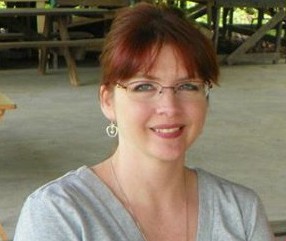 Cori Hill Heymann is currently a senior undergraduate student at Eastern Oregon University studying anthropology and sociology. Her senior research includes an ethnographic study of the ‘Death Doula’ movement in the United States. Cori also works full time in the managed healthcare industry (17 years) and continues to observe how private healthcare plans are (or are not) underwritten to support end-of-life care, as well as how medical management programs may influence end-of-life treatment. She is a direct patient support volunteer for hospice and hosts the Winston-Salem Death Café in North Carolina, where she resides. Cori is also the webmaster for SMA’s Dying and Bereavement Special Interest Group.
Cori Hill Heymann is currently a senior undergraduate student at Eastern Oregon University studying anthropology and sociology. Her senior research includes an ethnographic study of the ‘Death Doula’ movement in the United States. Cori also works full time in the managed healthcare industry (17 years) and continues to observe how private healthcare plans are (or are not) underwritten to support end-of-life care, as well as how medical management programs may influence end-of-life treatment. She is a direct patient support volunteer for hospice and hosts the Winston-Salem Death Café in North Carolina, where she resides. Cori is also the webmaster for SMA’s Dying and Bereavement Special Interest Group.
Sadaf Noor E Islam
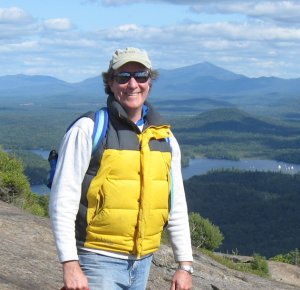 Donald Joralemon (djoralem@smith.edu) is Professor of Anthropology at Smith College. His B.A. is from Oberlin College (1974) and his doctorate from the University of California, Los Angeles (1983). Professor Joralemon has done fieldwork in Peru and in the United States. He has published widely on shamanism and, most recently, on medical ethics. He is the co-author (with Douglas Sharon) of Sorcery and Shamanism (1993) and author of Exploring Medical Anthropology (Fourth edition in preparation). His article, “Dying While Living: the Problem of Social Death,” appears in the edited collection Our Changing Journey to the End (C. Staudt and J. H. Ellens, Praeger, 2014). The journal Mortality recently published his article, “Ordering Chaos: The Process of Remembering Mass Murder” (2015). His new book, Mortal Dilemmas: The Troubled Landscape of Death in America (Left Coast Press) was recently published in January 2016.
Donald Joralemon (djoralem@smith.edu) is Professor of Anthropology at Smith College. His B.A. is from Oberlin College (1974) and his doctorate from the University of California, Los Angeles (1983). Professor Joralemon has done fieldwork in Peru and in the United States. He has published widely on shamanism and, most recently, on medical ethics. He is the co-author (with Douglas Sharon) of Sorcery and Shamanism (1993) and author of Exploring Medical Anthropology (Fourth edition in preparation). His article, “Dying While Living: the Problem of Social Death,” appears in the edited collection Our Changing Journey to the End (C. Staudt and J. H. Ellens, Praeger, 2014). The journal Mortality recently published his article, “Ordering Chaos: The Process of Remembering Mass Murder” (2015). His new book, Mortal Dilemmas: The Troubled Landscape of Death in America (Left Coast Press) was recently published in January 2016.
Hadi Karsoho is a Ph.D. candidate in sociology and social studies of medicine at McGill University. His doctoral thesis is centered on Carter v. Canada, the ongoing landmark court case that is shaping up to be the most significant legal challenge to Canada’s Criminal Code prohibitions on euthanasia and assisted suicide since Rodriguez v. British Columbia in 1993. By following the unfolding of the series of events and the diverse actors associated with the case, Hadi is able to investigate contemporary questions on death and dying that lie at the intersection of law, medicine, and ethics. Hadi considers himself an interdisciplinary scholar having received training in both quantitative and qualitative research methods and from multiple disciplines. Hadi holds a bachelor of arts degree in mass communications from University of California, Berkeley. From 2011-2013, he was a doctoral fellow in Health Care, Technology, and Place, a Canadian Institutes of Health Research strategic training initiative based at the University of Toronto. In 2014-2015, he holds a Wolfe graduate fellowship in scientific and technological literacy.
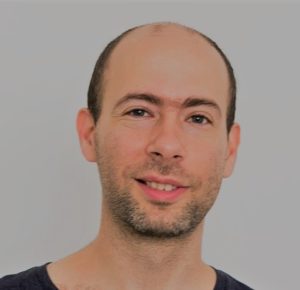 Ori Katz is a PhD candidate in the Department of Sociology and Anthropology at Ben-Gurion University of the Negev. His current research deals with (non-military) missing persons in Israel, revealing how narratives of “missingness” are constructed in conditions of ambiguity and uncertainty. This research is an extension of his interests in the cultural space between life and death. His previous research examined Posthumous Fertilization using frozen sperm in Israel. He serves as chair of the Junior Scholars Network of the Israeli Sociological Society.
Ori Katz is a PhD candidate in the Department of Sociology and Anthropology at Ben-Gurion University of the Negev. His current research deals with (non-military) missing persons in Israel, revealing how narratives of “missingness” are constructed in conditions of ambiguity and uncertainty. This research is an extension of his interests in the cultural space between life and death. His previous research examined Posthumous Fertilization using frozen sperm in Israel. He serves as chair of the Junior Scholars Network of the Israeli Sociological Society.
Hiroaki “Hiro” Kawamura
Barbara A. Koenig, Ph.D., is Professor, Institute for Health & Aging, University of California, San Francisco. She is an anthropologist who works in the inter-disciplinary field of bioethics. She helped found the Center for Biomedical Ethics at Stanford University (and was on the faculty from 1993 through 2005); from 2005 to 2011 she created and led the Biomedical Ethics Research Program at Mayo Clinic.
Koenig pioneered the use of empirical methods in the study of ethical questions in science, medicine, and health. Her current focus is emerging genomic technologies, including: biobanking, return of research results to participants, the use of whole genome sequencing in newborn screening, and using deliberative democracy to engage communities about research governance. Dr. Koenig has been continuously funded by NIH since 1991. Currently, she co-directs a “Center of Excellence in ELSI Research” at UCSF, leads an NCI ROI on return of results in genomic biobanks, and directs the ELSI component of a U19 award focused on newborn screening in an era of whole genome analysis. She has been an active participant in federal policy, including the “Secretary’s Advisory Committee on Genetic Testing.” Her most recent book is Revisiting Race in a Genomic Age.
Veronika Koller is Senior Lecturer at the Department of Linguistics and English Language at Lancaster University (UK). Her research interests ae in discourse analysis and metaphor, which she applies to health communication, corporate discourse, and langugae and sexuality. Her publications include Metaphor and Gender in Business Media Discourse (Palgrave 2004), Handbook of Communication in the Public Sphere (co-edited with Ruth Wodak, de Gruyter 2008) as well as numerous book chapters and journal articles. Her most recent work addresses issues of metaphor, cancer and the end of life.
Anna E. Kubiak is the cultural anthropologist, associate professor in the Institute of Philosophy and Sociology of the Polish Academy of Sciences and a lecturer in Collegium Civitas in Warsaw, Poland. She is the author of books: Delicacy and the Left Krishna’s Hand (IFiS, Warsaw 1997), However NEW AGE (Santorski & Co, Warsaw 2005), Nostalgia and other longing (Stopka, Łomża 2007), OTHER DEATHS. Anthropology of dying and mourning in late modernity (Universitas, Warsaw 2014), Funerals are our lives (IFiS PAN, Warsaw 2015). Her research interests include death studies, bioethics and visual anthropology. After publishing her article on euthanasia and physician aid in dying titled: Assisted dying in the context of biopower (http://www.drustvo-antropologov.si/AN/2015_1_eng.html) she is planning the book on this topic. More: http://www.ifispan.pl/members/akubiakifispan-waw-pl/profile.
 Andrea Lambell is a medical anthropology PhD student at Durham University in the UK. Her project, funded by the government’s Economic and Social Research Council, is investigating barriers to palliative care through a realist evaluation of the use of non-conventional therapies for people affected by life-limiting illness. Her Masters in Research Methods, completed at Durham University in 2019, presented ‘massage ethnography’, a novel method of participant observation aimed at facilitating ethical and equitable research in palliative care. Prior to attending Durham University, Andrea spent 14 years as a member of a multidisciplinary hospice clinical outreach team, providing massage and aromatherapy to people with life-limiting illness in a range of settings. During this time she completed a multidisciplinary health sciences BSc(Hons) with the Open University.
Andrea Lambell is a medical anthropology PhD student at Durham University in the UK. Her project, funded by the government’s Economic and Social Research Council, is investigating barriers to palliative care through a realist evaluation of the use of non-conventional therapies for people affected by life-limiting illness. Her Masters in Research Methods, completed at Durham University in 2019, presented ‘massage ethnography’, a novel method of participant observation aimed at facilitating ethical and equitable research in palliative care. Prior to attending Durham University, Andrea spent 14 years as a member of a multidisciplinary hospice clinical outreach team, providing massage and aromatherapy to people with life-limiting illness in a range of settings. During this time she completed a multidisciplinary health sciences BSc(Hons) with the Open University.
Betty Wolder Levin is a professor in the Department of Health and Nutrition Sciences at Brooklyn College and is also affiliated with the Department of Public Health at the CUNY Graduate Center and the CUNY School of Public Health. She holds a PhD in Sociomedical Sciences with a specialization in Anthropology from Columbia University. She began studying decision making in neonatal intensive care units in 1977 and has worked on ethical issues in public health, pediatrics and end-of-life care since that time.
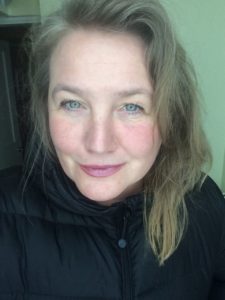 Tiina Maripuu is currently completing her Anthropology M.A. Her Masters Research Paper will be a thematic analysis of grief in the medical records of the older adults diagnosed with Dementia. Tiina has been accepted into the Anthropology Ph.D. program starting in September 2021 at the University of Toronto. She will be focusing on the socio-emotional well-being of the elder individuals in the institutionalized settings in Ontario. In parallel to the M.A. and Ph.D. Tiina has also enrolled into the Collaborative Specialization Program “Aging, Palliative Care and Supportive Care Across the Life Course” offered by Factor-Inwentash Faculty of Social Work. Tiina earned her B.A. in Anthropology with a minor in History in 2020 from University of Toronto. She is currently volunteering at the call lines with the National Initiative for the Care of the Elderly (NICE). In her time off, Tiina enjoys cooking, hiking, camping as well as knitting and needlepoint.
Tiina Maripuu is currently completing her Anthropology M.A. Her Masters Research Paper will be a thematic analysis of grief in the medical records of the older adults diagnosed with Dementia. Tiina has been accepted into the Anthropology Ph.D. program starting in September 2021 at the University of Toronto. She will be focusing on the socio-emotional well-being of the elder individuals in the institutionalized settings in Ontario. In parallel to the M.A. and Ph.D. Tiina has also enrolled into the Collaborative Specialization Program “Aging, Palliative Care and Supportive Care Across the Life Course” offered by Factor-Inwentash Faculty of Social Work. Tiina earned her B.A. in Anthropology with a minor in History in 2020 from University of Toronto. She is currently volunteering at the call lines with the National Initiative for the Care of the Elderly (NICE). In her time off, Tiina enjoys cooking, hiking, camping as well as knitting and needlepoint.
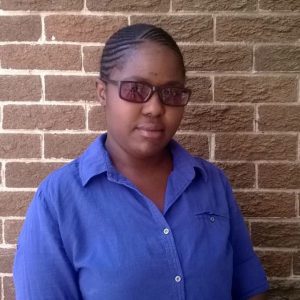 Veronica Masenya is from the University of the Free State in South Africa. I am a first year Sociology Lecturer and doctoral candidate both in Sociology and Anthropology at the same University. My ethnographic study aims at exploring why people invest so much material and social capital to commemorate the death of their loved ones, even if it result in bankruptcy. I aim to look at different burial practices and procedures and how does that translate in the lives of people. Death had become a commodity globally and locally, I want to tap into the meaning and impact of that commercialisation.
Veronica Masenya is from the University of the Free State in South Africa. I am a first year Sociology Lecturer and doctoral candidate both in Sociology and Anthropology at the same University. My ethnographic study aims at exploring why people invest so much material and social capital to commemorate the death of their loved ones, even if it result in bankruptcy. I aim to look at different burial practices and procedures and how does that translate in the lives of people. Death had become a commodity globally and locally, I want to tap into the meaning and impact of that commercialisation.
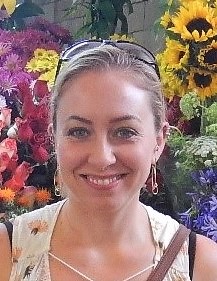
Laura Meek is a PhD candidate in Sociocultural Anthropology at the University of California, Davis. She holds a MA in Women’s Studies from George Washington University and a BA in Comparative Human Development from The University of Chicago. Laura’s dissertation explores the globalization of pharmaceuticals in East Africa, embodiment and bodily epistemologies, and the ethics of healing. She conducted over two years of ethnographic fieldwork in Tanzania (supported by grants from the National Science Foundation and the Wenner-Gren Foundation), examining how pharmaceuticals were used and understood by diversely situated social actors. In her dissertation, Laura frames her interlocutors’ engagement with pharmaceuticals as a form of healing—involving the re/creating of right social relationships (including in death and beyond)—and contrasts this with a biomedical emphasis on curing—which locates the efficacy of medicines in their chemical properties, rather than in the contexts and circumstances of their use. The work that emerges from this research lies at the intersection of medical anthropology, postcolonial studies, and feminist science studies, and grapples with how to theoretically render both radical uncertainty and “world making” innovation in Africa today. Additional areas of research interest include counterfeits & other “fakes”; the history of medicine and healing across the Indian Ocean world; methods as theory; bodies, experimentation, and practices of dreaming.
Megan Stamey McAlvain is a PhD student at the University of Connecticut, and is interested in the Death Doula movement in the US and the UK. She joins the Dying and Bereavement Interest Group in order to connect with other colleagues and researchers who currently research or have researched end of life care in alternate forms, and especially those outside the western biomedical model.
Aimee Middlemiss
Susan O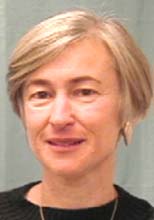 rpett Long, PhD. Trained in cultural and medical anthropology and East Asian Studies at University of Michigan (A.B.) and University of Illinois (A.M., Ph.D), I was hired at John Carroll University with the task of starting up an East Asian Studies program. I served as that program’s director for many years, and as a member of the Sociology department, introduced anthropology courses to a university that had never had an anthropologist. I regularly teach such courses as Introduction to Anthropology, Medicine and Culture, Public Health, Japanese Society, East Asian Medicine, Japanese Popular Culture, and Sex and Gender.
rpett Long, PhD. Trained in cultural and medical anthropology and East Asian Studies at University of Michigan (A.B.) and University of Illinois (A.M., Ph.D), I was hired at John Carroll University with the task of starting up an East Asian Studies program. I served as that program’s director for many years, and as a member of the Sociology department, introduced anthropology courses to a university that had never had an anthropologist. I regularly teach such courses as Introduction to Anthropology, Medicine and Culture, Public Health, Japanese Society, East Asian Medicine, Japanese Popular Culture, and Sex and Gender.
My research has focused on family change, care of the elderly, and the cross-cultural study of bioethical issues surrounding the end of life in Japan and the United States. My research has been published in numerous journals and book chapters, including Mortality, Journal of Cross-Cultural Gerontology, Journal of Japanese Studies, Social Science and Medicine, and Cambridge Quarterly for Health Care Ethics. My ethnography on ethical issues at the end of life, Final Days: Japanese Culture and Choice at the End of Life (University of Hawaii Press, 2005) was awarded the Hsu Book Prize for by the Society for East Asian Anthropology in 2006. I have also edited or co-edited several multi-authored volumes and am currently working on an edited volume on the anthropology of death. (http://sites.jcu.edu/sociology/professor/susan-orpett-long-ph-d/)
Cortney Hughes Rinker is Assistant Professor in the Department of Sociology and Anthropology at George Mason University. Her academic interests are in aging, end-of-life care, the treatment of pain, Islam, science and technology, public policy, and applied anthropology. She conducts ethnographic fieldwork in Morocco and the Washington, D.C. area.
Antonius C.G.M. Robben is Professor of Anthropology at Utrecht University, the Netherlands, and past President of the Netherlands Society of Anthropology. He received a Ph.D. (1986) from the University of California, Berkeley, and has been a research fellow at the Michigan Society of Fellows, Ann Arbor, the Harry Frank Guggenheim Foundation, New York, and the David Rockefeller Center, Harvard University. His most recent books include the ethnography Political Violence and Trauma in Argentina (Penn 2005), which won the Textor Prize from the American Anthropological Association in 2006, and the edited volumes Death, Mourning, and Burial: A Cross-Cultural Reader (Wiley-Blackwell 2004), Ethnographic Fieldwork: An Anthropological Reader (Wiley-Blackwell 2007 & 2012; co-edited with Jeffrey Sluka), Iraq at a Distance: What Anthropologists Can Teach Us About the War (Penn 2010), and Necropolitics: Mass Graves and Exhumations in the Age of Human Rights (Penn 2015; co-edited with Francisco Ferrándiz).
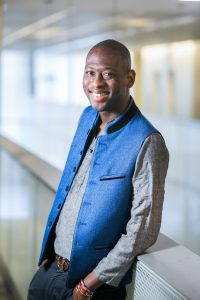 Atiba Rougier holds a BA in Philosophy and Anthropology from Union College, an MA in Philosophy and Religion with a focus on Asian and Comparative Studies from the California Institute of Integral Studies and an MA in Social and Cultural Anthropology from The New School for Social Research with a focus on Death & Dying, Palliative Care, and Biomedical Ethics.
Atiba Rougier holds a BA in Philosophy and Anthropology from Union College, an MA in Philosophy and Religion with a focus on Asian and Comparative Studies from the California Institute of Integral Studies and an MA in Social and Cultural Anthropology from The New School for Social Research with a focus on Death & Dying, Palliative Care, and Biomedical Ethics.
Atiba is currently Lecturer/Adjunct Professor at John Jay College of Criminal Justice. Prior to this, in 2015, he was the Director of Grants and Curriculum Development at The Humanities Action Lab at Eugene Lang College. From 2010 – 2015 Atiba taught at Charter Schools in Brooklyn and Queens. In the of summer 2014, he was awarded a fellowship with the New York City Food Bank where he was responsible for implementing the required curriculum for the New York City Food Bank AfterSchool Summer Fellowship in the Brooklyn District.
He holds research fellowships from The Program in Medicine and Human Values at California Pacific Medical Centre (2008); The Posse Foundation (2013); Revitalize New York (2013 – 2014) New York City Food Bank (2014) and the India China Institute (2014 – present). In the summer of 2015 with a grant from the India China Institute, he conducted research in Bhopal, India, with survivors of the Union Carbide Gas Leak of December 1984.
Publications/Articles: The JapaneseAmericanExperience during WWII (2015); “to die like a dog” (2008); Atiba has two forthcoming publications, The Importance of Storytelling—Caring and Sharing in the Neoliberal Present (2016) and Reflections on Bhopal (2016)
Carrie Ryan
Dr. Sherry R. Schachter the Director of Bereavement Services for Calvary Hospital / Hospice where she develops, coordinates, and facilitates educational services for staff and families. She facilitates weekly bereavement groups for bereaved spouses/partners, adults whose parents have died and parents who have lost adult children. Dr Schachter also directs Camp Compass®, the hospital’s weeklong summer camp for bereaved children and adolescents. Dr Schachter is a recipient of the prestigious Lane Adams Award for Excellence in Cancer Nursing from the American Cancer Society and for over thirty years has worked with dying patients and their family caregivers. In addition, she is the past president of the Association for Death Education and Counseling The Thanatology Association (ADEC) and a member of the International Work Group on Death, Dying and Bereavement (IWG). Dr Schachter has a private practice in New York City and Pennsylvania, writes a monthly column for Journeys, a publication from the Hospice Foundation of America and also publishes and lectures on issues related to dying, death and loss.
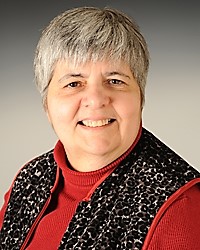 Margaret Souza is a Professor Emerita at SUNY/Empire State College. Her research focuses on the process of dying in the US and the various ways in which different participants understand and respond to the process. She also conducts research about individuals living with chronic (often considered terminal) diagnoses as well as bereavement as a social process. She began the Special Interest Group on Death and Bereavement in the Society for Medical Anthropology to provide the increasing number of scholars in this area with a opportunity to share their research and provide information regarding conferences and events that would be of interest to the participants. Before earning a PhD in medical anthropology from The New School, she worked as a clinical social worker for 20 years in acute and long term care medical settings. She also holds a MSW from Wayne State University.
Margaret Souza is a Professor Emerita at SUNY/Empire State College. Her research focuses on the process of dying in the US and the various ways in which different participants understand and respond to the process. She also conducts research about individuals living with chronic (often considered terminal) diagnoses as well as bereavement as a social process. She began the Special Interest Group on Death and Bereavement in the Society for Medical Anthropology to provide the increasing number of scholars in this area with a opportunity to share their research and provide information regarding conferences and events that would be of interest to the participants. Before earning a PhD in medical anthropology from The New School, she worked as a clinical social worker for 20 years in acute and long term care medical settings. She also holds a MSW from Wayne State University.
Karen Spence
Halina Suwalowska
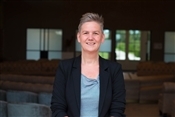 Yvon van der Pijl is Associate Professor of Cultural Anthropology at Utrecht University. Connecting anthropology, cultural studies, and collaborative ethnography, her work explores cross-cultural meanings of death, dying, and disposal across scales. She is particularly interested in how end-of-life issues, on the one hand, and pre- and post-mortem care arrangements and ritual practices on the other, are generative of change and various forms of belonging. She has conducted extensive research in Suriname and the Netherlands. Another line of research relates to issues of non/sovereignty, equaliberty, postcolonialism, and politics of belonging in the Dutch Caribbean. Currently, Yvon focuses on both pre- and post-mortem care practices and ideals in the Netherlands. She is fascinated by new arrangements and rituals that emerge under the pretext of liberal choice and as celebrations of life, whereas aging, morbidity, and death are simultaneously viewed as medical-technological failures rather than as inevitable human (spiritual) trajectories. Her research critically explores the messy cycle of life and death that carries elements of death denial, death revival, and death avoidance at the same time.
Yvon van der Pijl is Associate Professor of Cultural Anthropology at Utrecht University. Connecting anthropology, cultural studies, and collaborative ethnography, her work explores cross-cultural meanings of death, dying, and disposal across scales. She is particularly interested in how end-of-life issues, on the one hand, and pre- and post-mortem care arrangements and ritual practices on the other, are generative of change and various forms of belonging. She has conducted extensive research in Suriname and the Netherlands. Another line of research relates to issues of non/sovereignty, equaliberty, postcolonialism, and politics of belonging in the Dutch Caribbean. Currently, Yvon focuses on both pre- and post-mortem care practices and ideals in the Netherlands. She is fascinated by new arrangements and rituals that emerge under the pretext of liberal choice and as celebrations of life, whereas aging, morbidity, and death are simultaneously viewed as medical-technological failures rather than as inevitable human (spiritual) trajectories. Her research critically explores the messy cycle of life and death that carries elements of death denial, death revival, and death avoidance at the same time.
See for more information: https://www.uu.nl/staff/yvanderpijl/
My name is Ken West. I spent 45 years working in UK cemeteries & crematoria. I obtained the Diploma of the Institute of Burial & Cremation Administration (IBCA) in 1974, and the Diploma in Management Studies (DMS – Credit) and Diploma of the Institute of Leisure and Amenity Management (ILAM) with distinctions in 1991. I was awarded the MBE by HRH Queen Elizabeth in 2002 and an Honorary MA by Durham University in 2012.
Having destroyed barn owl habitat in my early cemetery horticultural work during the 1960’s, I was able to develop wildflower conservation by the 1980’s and took this to another level by opening the world’s first natural burial site in 1993. Subsequently, I proposed and then wrote the Charter for the Bereaved (1995), and after retirement, wrote ‘A Guide to Natural Burial’ in 2010 and ‘R.I.P. Off! or The British Way of Death’ in 2012. This black humour novel is an attempt to create a genre that encourages people to read about and understand death and funeral issues. My website is entirely death related and includes issues on the environment, sustainability and funeral poverty as well as a more detailed CV, see www.naturalburialcreator.co.uk My interests are gardening, cycling and running, with my lifetime running mileage now exceeding 64,000 miles. I live in Christchurch, Dorset, with Ann, just four minutes from the sea, where we kayak in summer.
 Teresa ‘Lilly’ White is a native Montanan. She is currently a PhD Anthropology Candidate at the University of Montana. She received her BSLS in Communication at MSU-B, in 2005, her BA in Forensic Anthropology in 2011, and her MA in Forensic Anthropology in 2013 at the University of Montana.
Teresa ‘Lilly’ White is a native Montanan. She is currently a PhD Anthropology Candidate at the University of Montana. She received her BSLS in Communication at MSU-B, in 2005, her BA in Forensic Anthropology in 2011, and her MA in Forensic Anthropology in 2013 at the University of Montana.
Lilly and her husband, Stocky (also a PhD Candidate in Anthropology), are the owners of Bone & Stone Anthrosciences, L.L.C. where they provide anthropological/archaeological consulting services for businesses and private parties, police departments and law enforcement agencies, forensic practitioners, forensic educators and coroners. Lilly worked with the School of Extended and Lifelong Learning (SELL), at UM, to organize and present the 3rd Annual Medicolegal Death Investigation Conference. Her dissertation research is entitled: An Ethnography of the Death Notification Processes between Coroners and Next-of-Kin. The purpose of the dissertation is to examine the Death Notification (DN) processes from a Symbolic Interactionism (SI) perspective between coroners and NOK using a Grounded Theory (GT) methodological framework. By utilizing GT with the lens of SI, she hopes to show the dynamic and alterable meanings and tensions in the interactional process of the DN experiences between and among coroners and NOK, while keeping in mind that individual and collective actions are consequential. Through interactions, meanings change.
Her research interests include: Cultural and forensic anthropology, osteology, death investigations, death notification studies, equivocal deaths, crime scene analysis, bloodstain pattern analysis, human decomposition, thermal and explosive trauma on bodies, taphonomy, forensic recovery of human remains, cold case investigations, end-of-life issues, secondary trauma, compassion fatigue, grief facilitation, and other topics. (Teresa.white@umontana.edu)
